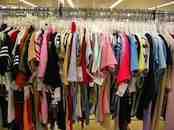Blog Post: Brief Thoughts on Consumerist Culture

I was cleaning out my wardrobe the other day and I found so many clothes which are for the most part still totally wearable—but are now being donated away because I’ve simply got too many of them. And how many of us are like that? I probably could clothe five girls decently with the amount of clothes I have currently, excluding all the stuff I’ve already gotten rid of. And I suspect that, for the most part, many of us consume than is necessary.
The consumerist culture paradigm which promotes us to buy continuously buy is just so prevalent. I’m sure I’m not alone in buying way more than I should and too often not considering the environmental and human impact of what I buy.
Interestingly enough, I don’t think that buying more things leads us to further happiness. At least it doesn’t for me. I honestly prefer (and I think many feel this way too) my relationships in my life over buying new things. I’m not happier when I have more clothes. But I am happier when I’m around people that I care about, or when I get to go outside and go for a hike. These have environmental costs in their own right, but contribute to the goal of lessening your impact.
When everyone around you is consuming, it seems only natural for yourself to consume as well. Admittedly, I am a typical female living in Western Society. I do buy things I don’t need, evidenced by my cluttered room-- and I’m often not conscious of what I’m buying and how it affects the environment. But I know I should be, and so I tried thinking of ways I could reduce my environmental footprint.
If you go to http://www.footprintnetwork.org/en/index.php/GFN/page/calculators/, you can estimate your environmental footprint and see where you can cut the cost. As the site will show you, everything has an impact from your diet, to your energy expenditures, to your transportation… cleaning out my clothes just happens to be one of the things that reminds me of how much I actually consume—and how little of it I actually need.
But it can be difficult to stand your ground in a world where we’re obsessed with buying the latest and brightest gadget or what-have-you. Technology and products aren’t built to last. They’re built to maximize profits of companies. So it will only be as good as it takes for a consumer to consider it good—but will break so the consumer has to buy another one. It’s a cycle which keeps the economy going in a cyclical fashion, but there is a point where enough is, or should be, enough!
To change the nature of this is a large task as it tackles the fundamental functioning of our economy. I have none of these answers. Hopefully, in time, we’ll be able to start a cultural shift, but it has to begin with people thinking about these sorts of things.
___________________________________________________________________________________________
Category:

































